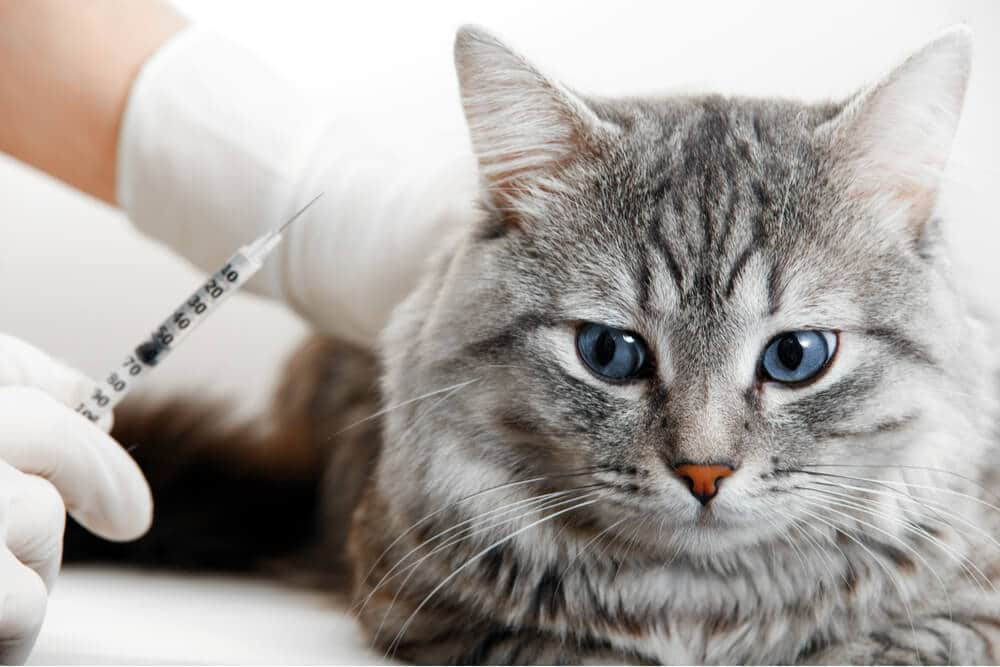
A diagnosis of a heart murmur in your cat can be worrying: this article aims to give you clear facts about what this means, and about the possible consequences for your cat’s health.
Quick Overview: Heart Murmurs in Cats
 Urgency: Moderate to high, depending on the grade of murmur.
Urgency: Moderate to high, depending on the grade of murmur.
 Requires Vet Visit: Yes
Requires Vet Visit: Yes
 Seen in Cats: Sometimes
Seen in Cats: Sometimes
 May be Linked to: Stress/anxiety, anemia, hypertrophic cardiomyopathy (HCM), other cardiomyopathies, infection on heart valve (endocarditis), congenital heart disease (patent ductus arteriosis, ventricular/atrial septal defects), heartworm disease, hyperthyroidism, high blood pressure (hypertension).
May be Linked to: Stress/anxiety, anemia, hypertrophic cardiomyopathy (HCM), other cardiomyopathies, infection on heart valve (endocarditis), congenital heart disease (patent ductus arteriosis, ventricular/atrial septal defects), heartworm disease, hyperthyroidism, high blood pressure (hypertension).
 Treatment Options: Treatment depends greatly on what disease is present and to what severity. Some murmurs are called "innocent" and require no formal treatment. Anemia or high blood pressure requires primary treatment for the resultant murmur to resolve. Cardiomyopathies may require medical management. Some congenital disorders may resolve as a cat grows, or may require surgical correction.
Treatment Options: Treatment depends greatly on what disease is present and to what severity. Some murmurs are called "innocent" and require no formal treatment. Anemia or high blood pressure requires primary treatment for the resultant murmur to resolve. Cardiomyopathies may require medical management. Some congenital disorders may resolve as a cat grows, or may require surgical correction.
What Is a Heart Murmur?
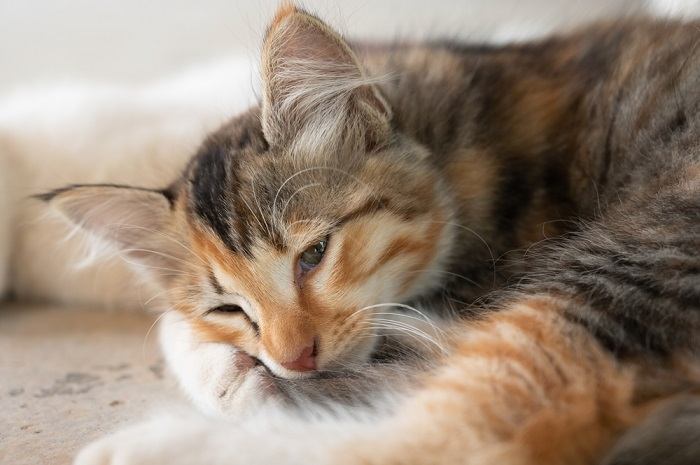
Normally, when your DVM veterinarian listens to the sound of your cat’s heart with a stethoscope, they will hear a regular, healthy heart beat, which sounds a bit like the thump of one drum after another: it’s classically described as sounding like “lub dup” with the beating sounding like “lub dup, lub dup, lub dup”, at a rate of around two or three “lub dups” every second.
A heart murmur is a swishing, whooshing, sound that the vet can hear with the stethoscope, as an extra noise, mixed up with the heart beat. Instead of “lubdup, lubdup”, the vet hears “lubshdup, lubshdup”, or “lubdubshhh, lubdupshhh”. It’s an abnormal sound which highlights that there is a potential problem that needs to be resolved.
What Causes a Heart Murmur?
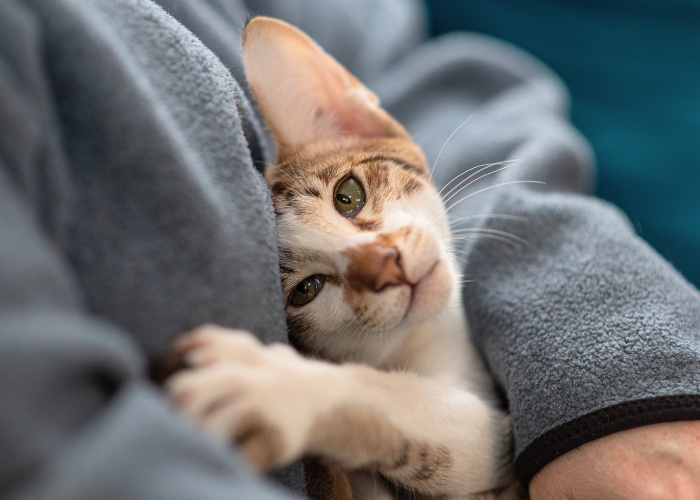
This swishing, hissing sound of a heart murmur is caused by turbulent blood flow through or around the heart. If you imagine a wide, deep river flowing by, there’s no turbulence, and no noise. Now imagine a stream flowing over rocks, or a river with rapids: the turbulence or disruption of the flow of the water creates a noise.
There are multiple common causes of the turbulent blood flow that leads to a heart murmur in a cat. Many causes are harmless, but some are serious and some are very serious indeed. The significance of a heart murmur depends on the cause of the murmur, and your veterinarian will analyse the murmur to work that out.
Heart Murmurs Are Classified in Different Ways
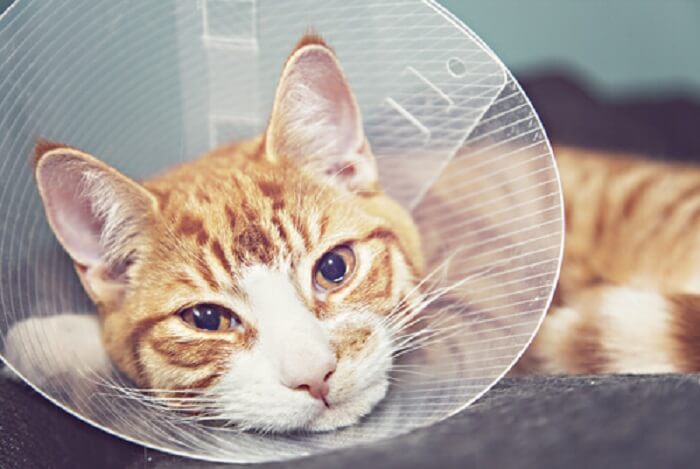
Heart murmurs are classified in three ways: loudness, location, and nature.
Loudness
Heart murmurs are graded on how easily they can be heard, on a scale of one to six, from quietest to loudest. The softest murmurs can be very hard to detect and may be only heard over one part of the heart. The loudest murmurs, suggesting more turbulence of the blood flow, can be heard over a wider area of the heart. Importantly, the significance of heart murmur does not depend just on the loudness: some quiet murmurs can indicate very serious disease, while some louder murmurs may be relatively benign.
The grading of heart murmurs is often somewhat subjective, and it’s based on the loudness of the murmur when the veterinarian listens to the chest with a stethoscope. The scale can be summarized as follows.
- Grade 1 – The faintest possible heart murmur: it may sometimes only be heard in the ideal situation, with a calm patient, in a quiet room, by a veterinarian with experience in listening to heart murmurs.
- Grade 2 – A quiet heart murmur that can be distinctly heard with a stethoscope, but not loud enough to cover up the normal sounds of the beating heart.
- Grade 3 – A moderately loud murmur that can be heard immediately when even an inexperienced veterinarian listens with a stethoscope, but still not loud enough to obscure the normal sounds of the beating heart.
- Grade 4 – A loud heart murmur that’s easily heard by an inexperienced veterinarian with a stethoscope and may begin to obscure the normal sounds of the beating heart.
- Grade 5 – A very loud heart murmur that obscures the normal sounds of the beating heart. It creates a physical vibration so that when a hand is placed on the cat’s chest, a “thrill” can be felt (this is a buzzy type of vibration caused by the loud murmur).
- Grade 6 – The loudest grade of heart murmur; can be heard even when the head of the stethoscope is held off the skin, away from physical contact with the chest.
Location
Your vet will identify where the heart murmur can be heard most distinctly: this can help to track down the underlying cause.
Nature
The dynamic nature of the heart murmur is important: is it constant, or does it change from heart beat to heart beat. Different terms are used to describe the murmur, such as galloping,
What Causes a Heart Murmur in Cats?
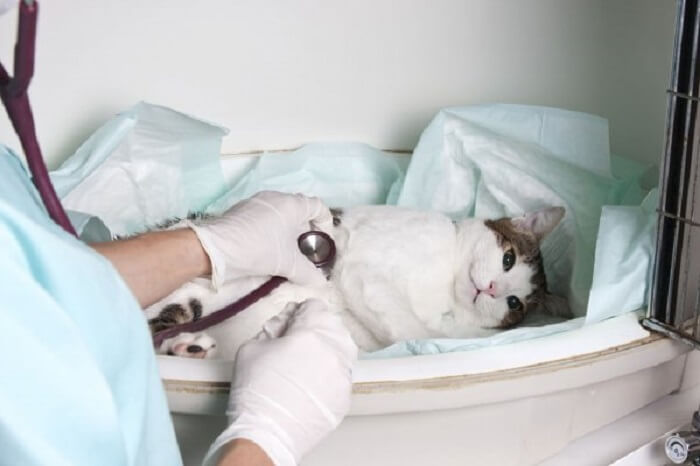
Several factors decide whether or not your cat will have a heart murmur. Causes include congenital or acquired heart disease, extracardial causes, and “innocent” murmurs.
Structural Heart Disease Since Birth
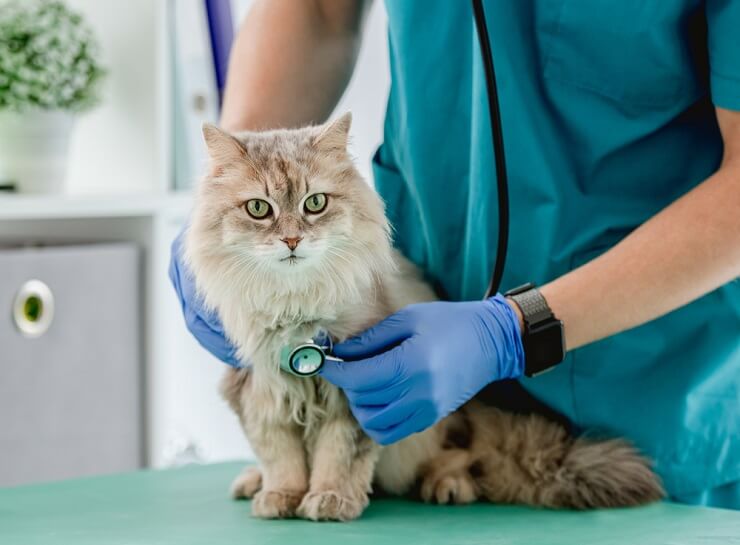
Some cats have congenital heart defects i.e. they are born with an anatomical abnormality of the heart or of the blood vessels around the heart. Examples of an abnormal heart include ventricular septal defects (“holes in the heart”), pulmonic stenosis (narrowing of the pulmonary artery as it leaves the heart), or patent ductus arteriosis (PDA) which is when a small blood vessel that is meant to close off before birth remains open.
There are many other heart defects that can cause heart murmurs, including heart valve problems (the two main heart valves are the mitral valve and the tricuspid valve, but there are other valves too).
Some pedigree cat breeds are more prone to heart disease of different kinds, including Maine Coons, and Ragdolls, but problems can also be seen in mixed breed cats (Domestic Shorthair or Longhair). Severe congenital heart problems may be obvious in very young kittens, but commonly they do not become apparent until the kitten has reached three or four months of age, when they become larger and more active, placing more stress on their cardiovascular system.
Acquired Cardiac Disease
Heart murmurs can also be caused by diseases that start in adult cats, such as heart muscle disease (e.g. hypertrophic cardiomyopathy or HCM).
Conditions Separate To The Heart
So-called “extra-cardiac” causes of heart murmurs include viral or bacterial infections, fever, pregnancy, obesity, emaciation, anemia, hyperthyroidism and hypoproteinemia. In these cases, the underlying disease may change the viscosity and flow of the blood, leading to the turbulence that causes the murmur.
Innocent Murmurs
In some cases, your vet may carry out a detailed investigation of your cat’s heart murmur only to find that there is absolutely nothing wrong with your cat. In these cases, the murmur is an incidental finding, of no significance, and it is known as “innocent” or “physiologic”. These murmurs tend to be quieter, with the cat showing no obvious signs of illness at all, but still, a work up may be needed to confirm that they are nothing to worry about. Sometimes such murmurs are only temporary, e.g. in young growing cats, but they can happen at any age.
How Does a Veterinarian Discover the Cause a Heart Murmur?
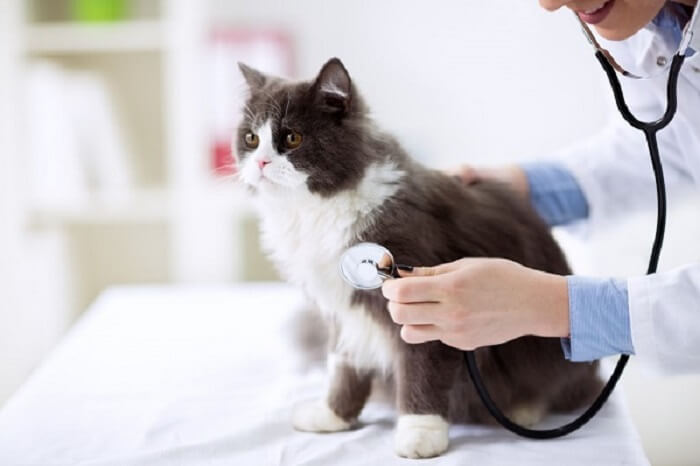
Cat heart murmur grade 1,2,3,4,5,6 life expectancy varies based on a range different of factors and previous health conditions
1. Stethoscope
A heart murmur is nearly always diagnosed by a veterinarian listening to your cat’s heart with a stethoscope, often during a routine health check. Occasionally , if the murmur is very loud, a diagnosis can be made simply by feeling a buzz when a hand is placed on the cat’s chest (this is known as a “pre-cordial thrill”. As well as making the diagnosis, your vet will also note details about the murmur, as well as many other aspects of your cat’s heart, including heart rate and regularity.
Once a heart murmur has been identified, your veterinarian will normally recommend further diagnostic testing to find out the underlying cause.
2. Physical Examination
Any investigation of any problem in a cat starts with a careful, thorough physical examination of your pet.
3. Ultrasound Examination
Detailed analysis of a heart murmur is usually accomplished by carrying out an echocardiogram, or an ultrasound examination of the heart. Ultrasound of the heart enables detailed evaluation of the heart muscle, the heart chambers, the valves of the heart, and other structures around the heart.
4. X-rays
Your vet may recommend chest x-rays, to visualise the size and shape of your cat’s heart, as well as other structures in your cat’s thorax (chest)
5. Advanced Imaging
Rarely, other types of imaging such as CT or MRI scans may be carried out, to obtain very detailed visualisation of the heart and associated structures.
6. Electrocardiogram
An electrocardiogram (ECG) is a recording of the electrical activity in your cat’s heart: this can be a useful way of gaining extra information about your cat’s cardiac function, as part of a gold standard approach to an investigation.
7. Blood Pressure Measurement
High blood pressure is common in older cats and can contribute to heart murmurs, so it can be important to monitor this.
8. Blood Tests
If an extra-cardiac cause of a heart murmur is suspected (such as anemia or hyperthyroidism), a blood sample may be taken for laboratory analysis.
9. Referral To A Specialist
Your local veterinarian may recommend referral to a veterinary cardiologist, who has a special interest in cardiology.
What Are the Symptoms of a Heart Murmur in Cats?
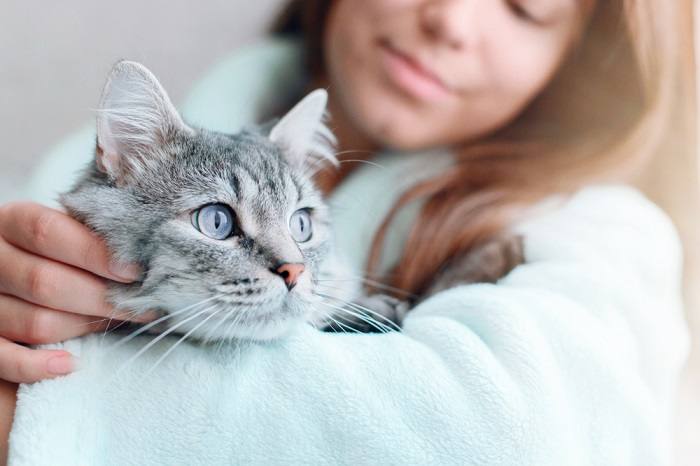
There are usually no external symptoms (clinical signs) of a heart murmur in itself. If the heart murmur is severe enough to cause heart disease (such as congestive heart failure) , then signs such as coughing, difficulty breathing, rapid breathing or even collapse may be seen.
If the cause of the murmur is extra-cardiac, then other signs of illness may be seen, depending on the cause (e.g. anemia or hyperthyroidism).
What Is the Life Expectancy of a Cat With a Heart Murmur?
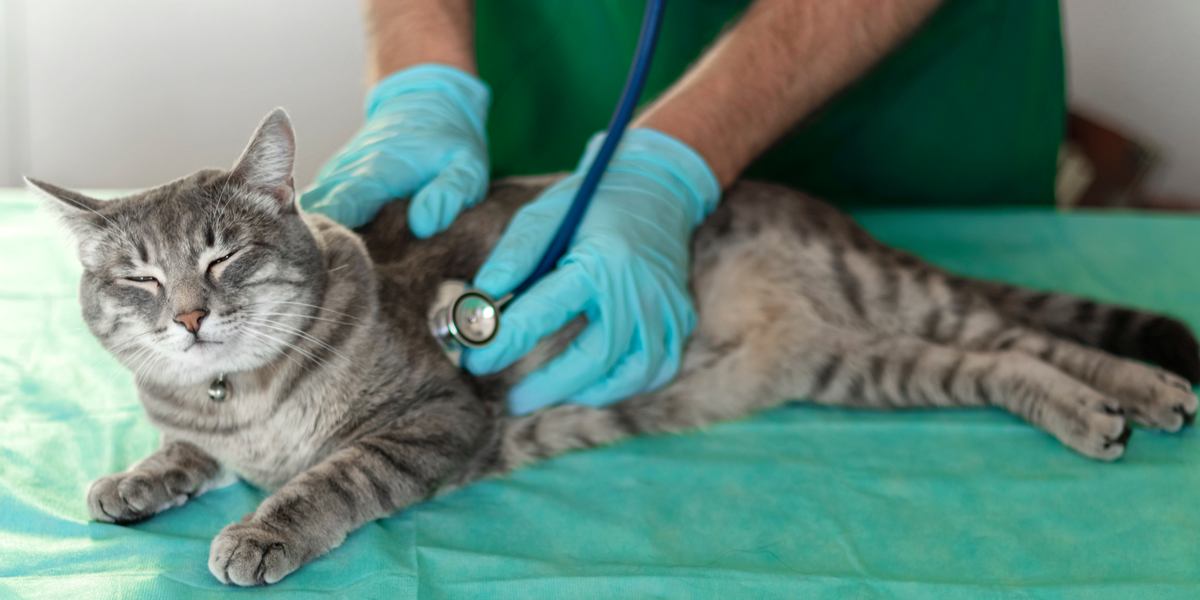
The life expectancy depends on the cause of the murmur: cats with benign or innocent murmurs will have a normal life span, while cats with heart murmurs caused by life threatening structural defects of the heart may only live for months or a few years. In some cases, sudden death of affected cats can even occur. This is why it’s so important to gain an accurate diagnosis of the cause.
Treatment Options for Heart Murmurs in Cats
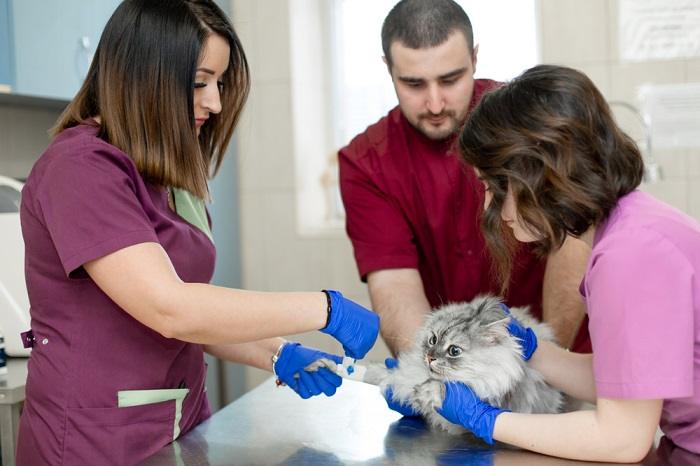
Not all cats with heart murmurs require treatment, but treatment may be needed for any underlying conditions.
A heart murmur in cats does not necessarily need treatment at all. The important fact to remember is that the cause of the murmur must be identified accurately.
Innocent murmurs need no treatment whatsoever, as they are harmless. Murmurs caused by structural heart defects may lead to the necessity for treatment of heart failure in due course, depending on the severity of the problem.
Murmurs caused by extra cardiac conditions require that those conditions should be treated, rather than specific treatment for heart disease.
Conclusion
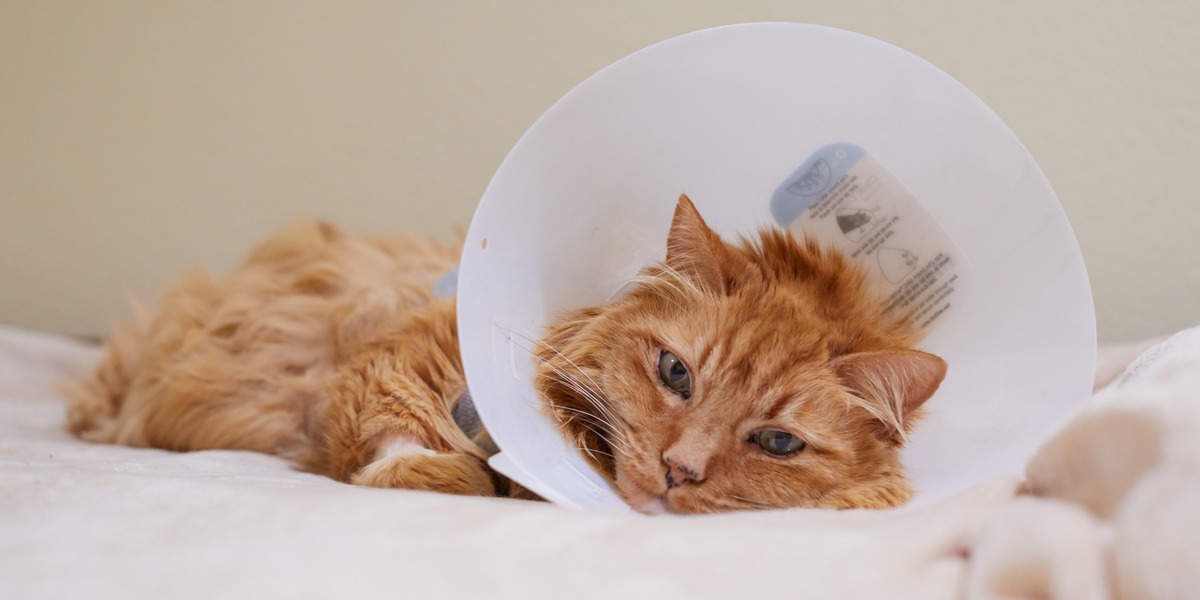
If your veterinarian tells you that your cat has a heart murmur, be sure to ask them to determine the precise cause of the murmur, so that you can take appropriate action to help your cat.





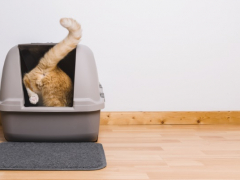
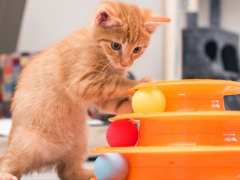

excellent informative info thank you
i have a cat that is 18yrs old and has a grade 111-1V/V1 lefr parasternal systolic murmur is that very serious since he has lived for so many years how will that condition affect his remaininf years. he gets good food, lots od exercise and i take him to the ver every year. At the moment he is suffering from extreme impaction
can you respomd to my quest about this grade 111 murmur
Hi Eva – the key question here is “what is the diagnosis?” What is the reason for the heart murmur? Is it a leaky valve? Is it a narrowed blood vessel? Is it cardiomyopathy? His prognosis depends on the precise diagnosis and how the underlying condition is changing over the years. The murmur is just a reflection of the primary issue. So you need to have another discussion with your vet to discuss this aspect. The impaction may be a completely separate issue to the heart murmur.
My Manx was diagnosed with a heart murmur. Is 14 years old… And has been showing signs of soft stools… Stools that stick to her rectum…more throwing up than normal…
She is a tamed Feral……the vet says it’s cause she is feral but never told me if it’s innocent or the degree of the murmur… I know that and I’m just doing research now had no idea I needed to ask these types of questions
At 14 years of age, there is a long list of possible causes of soft feces and vomiting, and this may have nothing at all do do with her heart murmur. Please read my other article on Inflammatory Bowel Disease in cats, which is common in older animals https://cats.com/ibd-in-cats
We just took our 8wk old ragdoll litter to the Vet for their 1st needle & check ups. 3 of the 5 have a heart murmur. grades 2 & 3.( Father Tri color Rag comes from a champion line & Mama Lynx Rag, comes from a reputable breeder, not sure if this info help any). Does this perhaps sound like stress or high blood pressure, because of 1st car ride & trip to the Vet. We had a kitten born with a heart murmur once & she grew out of it by her 12th wk check up. Is 3 out of 5 common for a litter. What are the chances that they are all at risk of more serious complications ? Please advise. I need to relay this information to the new owners before they adopt. Yikes!
HI and thanks for your question. First, it does not make much difference whether a cat is a champion line, or a high profile breeder – the important question is “what type of screening for heart disease do they do on their cats before breeding them?”. Can you find out?
Some kittens do have innocent heart murmurs that they grow out of by three or four months of age. The challenge is that the only way to be sure that a murmur is innocent is to have a full work up done by a cardiologist, and this costs time and money! It is not possible to give you percentages about how much at risk they are of serious complications without doing this. I think the best answer here is for you to have a detailed discussion with the vet who has diagnosed the murmurs, asking them for advice on how to proceed. Ask them what to say to the new owners. It may be that you will have to explain that the kittens have murmurs which are probably innocent, but you cannot be 100% sure. It is not easy to do this, as many people will decide that they do not want to take on a kitten with any degree of risk, but from your perspective, full transparency is important. And following the specific advice of your vet, who has examined the kittens, is the only safe way to proceed. If you think of it, come back in a few months and let us know how you get on.
wonderful information thank you so much!. Can my cat that has Entropion and a slight heart murmur [unsure of classification] undergo anesthesia for the correction of Entropion? She is also in the very very early stages of kidney issues, on Rx food.
I would recommend having your vet run bloodwork and a physical and answer based on their own assessment—it’s impossible to say without evaluating your cat.
I have a 17.5 year old part Maine Coon with a Grade 4 murmur, losing weight 12ibs down to 8. We found a Grade 4 murmur in 2008 after he was HBC and lost a toe. In 2012(when he was 12ibs) we put him on Atenolol, in 2017 our Vet retired and he had a Grade 1 murmur.
He is still remarkably full of life and his bloodwork came back with slight elevations in Kidney function but new Vet says remarkably good results given his age. He will not give us a script for Atenolol because his weight is now too low for the .25 tablet size, I wanted to try an 1/8th he did not feel comfortable that we could make it that small. His only recommendation was to go to a Cardiologist. At his age and my low Teacher income I am feeling at a loss how to help him. Can you offer any suggestions for him?
Hi Tania, thank you for your comment! I’m afraid I cannot give you any advice, as I am not a vet, and our vet team is unable to make recommendations without directly examining your cat. However, from what I understand, there is an oral liquid form of Atenolol that may be easier to dose at your cat’s weight. I would ask your vet about it. Wishing you and your cat all the best!
Hello:
I have a 5-6 year old cat that was diagnosed with a grade III murmur today. He is asymptomatic. His appetite and energy level is great. No cough, shortness of breath, or wheezing. No weight loss. This was discovered at his annual physical visit. I want to do what is best for my pet. However, I honestly cannot afford the $500 to $700 for a cardio consult plus echo. I can have chest radiographs completed by my DVM. Is this something that can be monitored without a specialist? I realize that all situations are unique. I also realize that the murmur can be the result of various factors. There is no guarantee. I am just a concerned cat mom. I really want to do what I can.
One of the challenges for pet parents and veterinarians these days is the concept of “gold standard” veterinary care, where you do everything precisely by the text book, regardless of cost. While this is the ideal answer, it’s often not affordable for many owners. So there is a growing trend for vets to discuss the alternative approach with pet parents: so-called “contextual” or “pragmatic” veterinary care, where costs are taken into account, and the focus is to carry out interventions that make a practical difference to the animal, rather than just adding to our information database on the pet. So while a cardio consult plus echo is the ideal here, in at least 25% of cases, the echo will be normal. And in many of the other 75% of cases, even if something is diagnosed (such as early cardiac myopathy), there is not likely to be medication that will change the course of the disease (there are exceptions, of course). Gold standard care identifies these exceptions, so that if your cat does go on to be one of the less common situations where they go on to develop a complication (such as a blood clot) you will not be able to take litigation against the vet because they did not identify this. (Fear of litigation is one of the driving forces behind the gold standard approach.) So you do have a choice, but if you wish to proceed without going to the specialist, you should discuss this more with your own veterinarian. I think it can help to ask the question “what difference will the information gathered from the specialist make to my cat’s care?”.